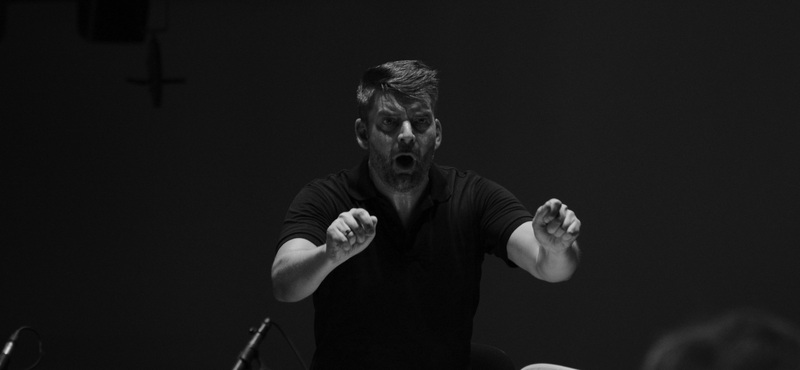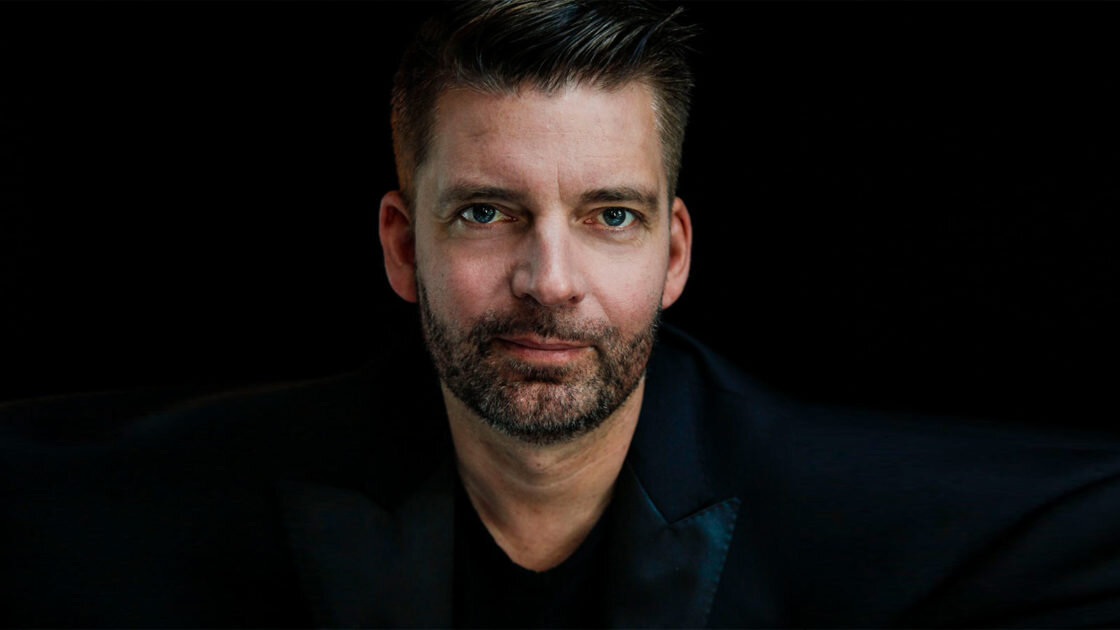Back from the Brink

Disaster averted (for now), the BSO plays on…
The back-from-the-brink Baltimore Symphony Orchestra’s second program of the season at Strathmore on Thursday was perhaps the most interesting one it will present all year. Composer-conductor Matthias Pintscher and composer-pianist Conrad Tao collaborated on a true rarity, the Scriabin Piano Concerto, which I’ve never heard live (in nearly a thousand orchestral concerts). The concerto is an early work and Scriabin’s first essay involving an orchestra. Its glittering piano writing suggests a Russian Chopin, and its profusion of themes echoes Rimsky-Korsakov.
Matthias Pintscher. Photo courtesy Opus 3 Artists.
But knowing the work only through an old Ashkenazy/Maazel recording, I was startled by how poorly-balanced it is in real life. Studio engineers can fix pretty much anything with microphone placement and mixing, but Scriabin’s inexperience in writing for orchestra meant that in actual performance the soloist is engulfed in oceans of sound that no amount of keyboard power can overcome. I’m sure we heard fewer than half of the notes Tao played. To fix this, Pintscher would have had to completely upend the planned rehearsal schedule, which, given what came next, was impossible.
And that was a shame because the concerto bursts with ideas, vigor, and virtuosity, and deserves much wider hearing. Tao was clearly impelled and affected by the music, re-creating it in front of us. His lithe, passionate keyboard approach would grace anything in the repertoire, but we’ll have to wait for another piece another time.
The principal offering was Bartok’s fairy-tale ballet The Wooden Prince of 1917, his largest and longest orchestral work, and as rare on the concert stage as the Scriabin. This was a huge undertaking by the BSO, and a particularly remarkable and risky choice given its budgetary woes and the fact that these resources were made available to someone who’d never led the orchestra before. The score calls for an enormous wind section (including two saxophones and two contra-bassoons), two harps, six trumpets, loads of percussion, etc., most of which were extras the orchestra had to hire. But reaching high is what major artistic organizations should do, and I hope management doesn’t look at this program (and the Mahler Third, later this season) as a symptom of a problem, because the ballet is indisputably the work of a genius.
The scenario, by Béla Balás, lacks the taut, lurid drama of The Miraculous Mandarin that Bartok created soon after, but the themes are just as sharply characterized, and his orchestration is a miracle, with every moment offering a brand-new color. The BSO (and its many guests) was stretched to the limit, the unfamiliar parts demanding virtuoso technique throughout. Pintscher, a protégé of Pierre Boulez, current Music Director of both the Ensemble Intercontemporain and Lucerne Festival Academy, as well as Music Director for the 2020 Ojai Music Festival, seemed to have a good handle on everything, kept order impressively, and made a strong case for the piece.
The program opened with Ravel’s charming and familiar Ma Mère l’oye, which I’m sure the musicians were happy to play. With the Bartok eating up the lion’s share of rehearsal time, the performance was somewhat by-the-book. Pintscher found little new in the piece, and indeed let some of my favorite expressive moments just slide by., but his BSO debut was certainly striking enough that he should be invited back soon.
Photo courtesy of the Lucerne Festival.






